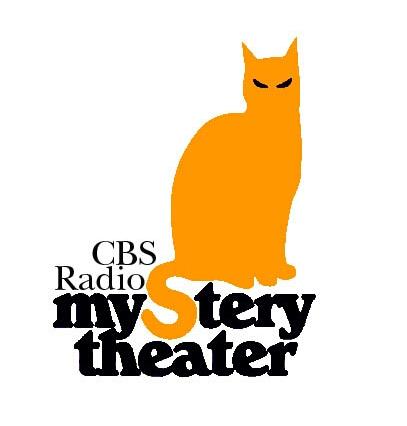CBS RADIO MYSTERY THEATER
CBS Radio Mystery Theater wasn’t initiated until the 1970s – long after so many radio broadcasts had failed in the intense competition with television.
 CBS RADIO MYSTERY THEATER
CBS RADIO MYSTERY THEATER
CBS Radio Mystery Theater wasn’t initiated until the 1970s – long after so many radio broadcasts had failed in the intense competition with television. CBS launched the dramatic mystery anthology in hopes of a radiobroadcasting comeback and chose such stars as Ralph Bell, Jane Higby and Bret Morrison. The host/narrator was the famous, E.G. Marshall and after he left the show for health reasons, Tammy Grimes took over.
For many years after it was clear that radio broadcasting was falling by the wayside, Himan Brown, a radio producer/director, strived to bring back radio’s glamour days, holding on to the premise that radio drama still had a place in the entertainment industry. Brown had created the original Inner Sanctum Mysteries in 1941 and he finally convinced others at CBS to revive radio drama in the form of CBS Radio Mystery Theater.
One reason that CBS decided to go along with Brown was that Mutual radio network had recently launched Zero Hour, which was also a radio drama revival. CBS Radio Mystery Theater was successful and lasted for nine years, but Zero Hour failed. The reason for the show’s success may have been that Agnes Moorehead, Zero Mostel and Richard Widmark starred in roles for the show for only $100 base pay – simply for their love of radio.
At first, the writing for the shows wasn’t up to par with the stars’ talents and the show suffered in spite of the attempts at writing from playwrights and writers like Paddy Chayefsky, Reginald Rose and performers such as Ian Martin, Elspeth Eric and Mary Jane Higby. Even though the show faltered, CBS Radio Mystery Theater won a Peabody Award in 1975, and with the help of reviving some of the old radio drama shows, became successful.
CBS wasn’t willing to pour a lot of money into the almost defunct world of radio programming, so the affiliates had no qualms about dropping the programs from their schedules or tape-delaying them – especially when it came to sports. Sports programs were a big money-maker for radio affiliates and eventually it took over radio so that the drama programs had little chance of survival.
Earl Wilson’s Broadway Column, a gossip and talk show (also called It Happened Last Night), noted that England was still successful in producing radio plays and that it was a “vibrant training ground” for talents like Harold Pinters. Wilson was referring to the revival of CBS Radio Mystery Theater when he said, “If we had the opportunity to really do it intelligently, we could run all the remnants of 1930s radio right off the air and make them hide their heads in shame.”
1,399 original episodes of CBS Radio Mystery Theater were produced and these were broadcast and rerun on the air nightly from January 6, 1974 until December 31, 1982.
Happy listening my friends,
